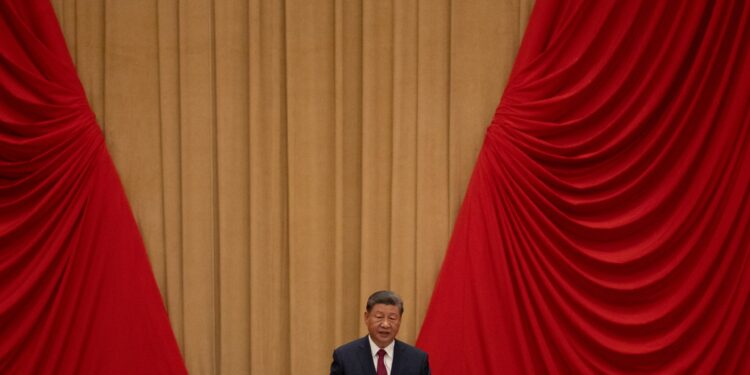Chinese commercial banks on Monday cut their base interest rates on 1-year loans by 3.1% and 5-year loans by 3.6% by 25 basis points, the People’s Bank of China (BBOC) announced.
These cuts – according to the Wall Street Journal – are part of an economic stimulus package announced by the Chinese authorities last September, with the aim of supporting economic growth, which is witnessing a slowdown.
The Governor of the People’s Bank of China, Pan Gongxing, said – in a speech he delivered at a financial forum in Beijing last Friday – that these cuts come after major commercial banks reduced deposit rates for the second time this year, paving the way for a reduction in key interest rates.
Speaking to the newspaper, Becky Liu, head of macroeconomic strategy at Standard Chartered Bank, described this step as “an encouraging sign that monetary policy is moving in the right direction to combat deflation,” referring to the shift in economic policy approved by the Standing Committee of the Politburo of the Communist Party in September. the past.
Existing challenges
The Wall Street Journal says that despite these measures, challenges still remain, as recent data showed that the Chinese economy grew by 4.6% on an annual basis in the third quarter of 2024, which is the slowest growth in 6 quarters.
Although it exceeded analysts’ expectations of 4.5%, this growth is still far from the target rate of 5%.
Zichun Huang, an economist at Capital Economics, explained to the newspaper that “monetary easing alone is unlikely to bring about a significant improvement in credit growth,” noting that economic recovery requires greater fiscal stimulus, in addition to the monetary policies followed.
More motivation
Expectations indicate that China will take additional steps to stimulate its slowing economy, as analysts expect that the central government will increase its debt, with expectations ranging between one trillion and three trillion yuan (about $137 billion to $411 billion).
Some estimates also indicate that the Chinese economy may need stimulus amounting to 10 trillion yuan (about 1.37 trillion dollars) to overcome the current economic difficulties.
Zi Wei Zhang, chief economist at asset management company Paint Point, noted that these monetary stimulus are a step in the right direction, but confidence and borrowing demand are still weak.
He said that “monetary measures alone are not enough to significantly stimulate demand for loans,” and with inflation remaining low, loan growth remains slow, which means that more monetary easing may be necessary in the near future.
All eyes are now on the National People’s Congress meeting in the coming weeks, as lawmakers are expected to approve a major fiscal stimulus plan.



